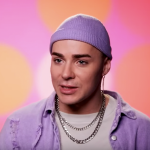Special Treatment
The article “People With HIV Less Likely to Receive Cancer Treatment” (July 7, 2014) reported the results of a study showing the differences in treatment rates between HIV-positive and HIV-negative people who had non-Hodgkin’s lymphoma, Hodgkin’s lymphoma, or cervical, lung, anal, prostate, colorectal or breast cancer between 1996 and 2010.
I had non-Hodgkin’s lymphoma in 2005 and was treated early and aggressively. I stayed on my HIV meds and have been cancer-free since. I’m also fortunate enough to have excellent health care insurance.
Greg H., Davenport, FL
I’m a cancer survivor with an AIDS diagnosis. I had classic lymphoma and am in re-mission going on two years. They should continue to treat HIV-positive people who are diagnosed with cancer. We want to live too.
Hector Reyes, Brooklyn
A friend was diagnosed with very early stage colorectal cancer at age 62. After bowel surgery he underwent two different sessions of chemotherapy. He had been HIV positive for two decades but was a non-progressor who never had to take medications and had no viral load. After his last treatment he was cancer-free but became very ill with PCP twice and then died. I believe the chemotherapy killed him, not the HIV, which his cells would not transport. The chemo had destroyed his immunity.
Rusty Sherwood, Sherman, TX
I’m HIV positive and over 50. I’d likely refuse cancer treat-ment as being an irresponsible expense. I have no desire to cling to life while consuming unnecessary resources.
Paul, Round Lake Park, IL
Positive TV
In the op-ed “It’s Time for a TV Dramedy Series About Life With HIV” (July 24, 2014), Christian Daniel Kiley shares his hope of producing Unsure/Positive, a relatable, entertaining and potentially serialized TV narrative about life with HIV.
Thanks for sharing your story. It’s really comforting to hear someone else go through what I’m going through! The project sounds amazing!
Matt, Philadelphia
Sounds like an amazing show for the homosexual community as a whole. But where does that leave the rest of us? The others who are suffering with HIV and AIDS every day? With more stigma.
Janedoehiv, Austin, TX
The opening scene is well written and well acted. In the United States, AIDS awareness has just about fallen off the radar. The fear and urgency of the 1980s and 1990s are gone—that may not be such a good thing.
Anthony Trocchia, Brooklyn
Mr. Kiley actually reinforces the “gay disease” stigma. This show sounds like any other television show or movie about HIV. If you really want to destroy the stigma surrounding HIV, a series needs to be produced about the straight man or woman with higher education who is a productive member of society who got the virus from a blood transfusion or at birth or in a straight relationship/marriage.
Str8hiv, Tampa
I always wanted to write a script about women and HIV. I have friends who have lived with it for over 25 years, myself included. We used to have a secret women’s group because the stigma was so bad back then. Three of us from the group are still alive today. I’m writing a book but don’t really feel people care so much about women with HIV, even though we are the ones that had to work, raise the kids and keep it together for our families. Kudos to you for going ahead with this project. There is still hope.
Iva, Tampa
Being a survivor of over 20 years, I think this is an awesome idea. It will be a great help to those who are recently diagnosed as well as the rest of the world. This would make a great television show, even a miniseries. I look forward to its production.
River, Toms River
Statement of Disclosure
The POZ staff blog “Partial Disclosure” (July 9, 2014) shared a photo of Morgan Molthrop, a former Wall Street executive, who was tattooed on his chest to disclose his bipolar disorder, addiction and HIV.
Disclosure is always a difficult thing to tackle!
William Butler
I admire the fact you stated that disclosure should be done in a safe and supervised environment. Disclosure is personal, and one must be ready for the good and the bad that will be in the wake of their disclosure.
Teresa
I am truly inspired by [Morgan’s] story. Although I am HIV negative, I have a long list of other health problems, and I was diagnosed with depression. My best friend also had drug addiction issues and is bipolar and HIV positive, so I educated myself quickly so that I could better understand what goes on in his head and be a good friend. Awareness is only the first step—education and understanding have to go along with it. After all, we all got something.
David White
Thank you, Morgan. It helps reading that there is a light at the end of the seemingly endless tunnel. It helps knowing that we are not alone. Again, thank you for your bravery and vulnerability.
Jamie






1 Comment
1 Comment